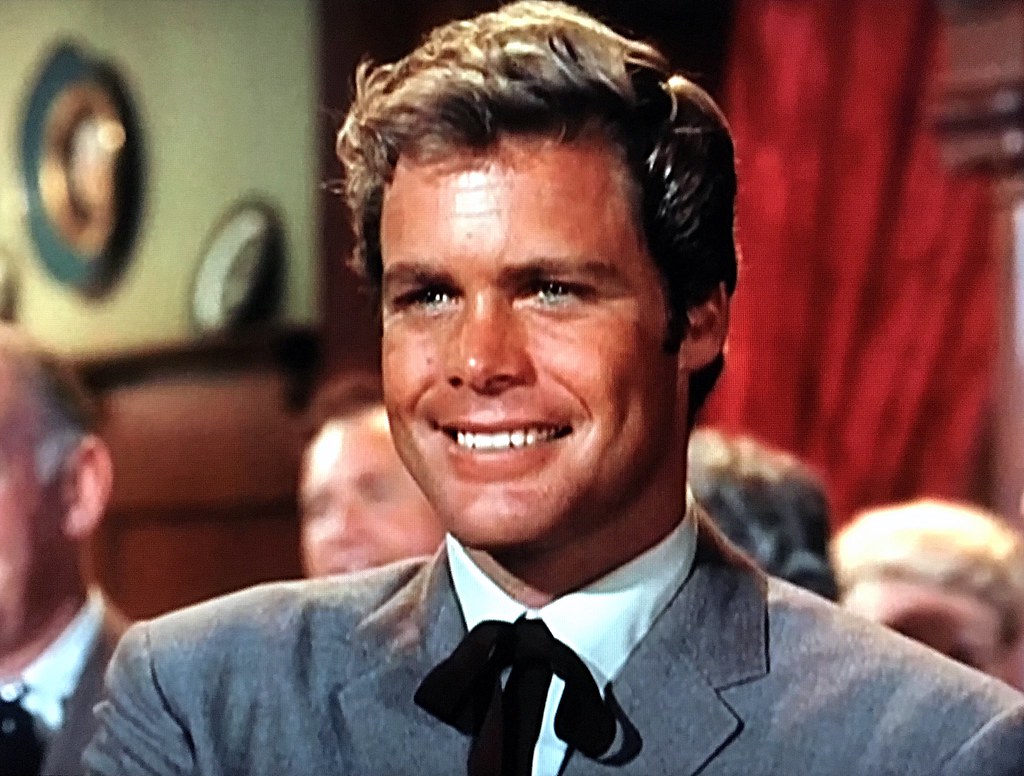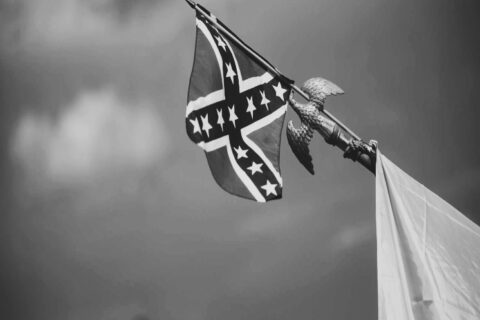Ernst Jünger is perhaps the preeminent warrior-philosopher of the twentieth century. His finest work, Storm of Steel, should be required reading for all adolescent males. Unlike Erich Maria Remarque’s poncy, anti-war screed, All Quiet on the Western Front, Jünger’s Steel glorifies honor, courage, discipline and, in a very strong sense, national loyalty. It is a war novel and written by a genuine, Great War, war hero (in contrast with Remarque, who changed his last name and was rumored to have never even seen combat). Note: I don’t mind nasty rumors.
Jünger was loyal to Germany, not the National Socialist German Workers’ Party, and something of a renaissance man. I cannot begin to bring his memory or literary works justice, but he may have been one of the last great knights of the West. We will take a sabbatical from Don Colacho posting and veer off toward the holder of the Pour le Mérite.
A civilization perhaps as superior as it strives to be – if the virile nerve relaxes, it is nothing more than a colossus with feet of clay. The more imposing the edifice, the more terrible will be the fall.
Ernst Jünger, Combat As An Inner Experience, Der Kampf als inneres Erlebnis
Was Jünger referring to the late-stage American Empire? Hardly. However, I find this extract to be a very vivid and compelling description of our frail civilization. It’s common for Dissident Right opinion-makers to decry (or praise) the collapse of the United States. By my humble estimation, it is never a matter of if, but when. And, the collapse will be both beautiful and tragic. Beautiful that the savage beast, one that has ravaged countries from South Carolina to Cambodia and deceived many of her finest sons to perish in forgotten fields, be torn asunder by her own blind hubris. Tragic that the fertile land of our forefathers, and their fathers before them, has been so thoroughly corrupted for nothing more than crude oil, cheap plastic and fiber optic cables.
What is the American Empire’s ethos? It’s “liberty” in name-only, state-enforced equality (a sham if there ever was one), and brutal anarcho-tyranny. The hypocrisy is astounding to an astute man; a man with his eyes wide open. But, a collapse is usually never an event, rather it is a process; it is a slow, nervous crawl through our own modern wasteland. It will be hallmarked by criminal taxation to uphold the lie of our faux civilization, ruined cities savaged by degeneracy, invasive technocrats hounding a frightened citizenry, and a culture bludgeoned into a coma by the Red Guards.
The egalitarian mania of demagogues is even more dangerous than the brutality of men in gallooned coats.
Ernst Jünger, Eumeswil
To understand this excerpt, realize that gallooned coats were typical for formal military garb prior to our olive drab smocks and hideous camouflage. Or, picture Gebhard Leberecht von Blücher posing next to the bland David Petraeus. One is aesthetic discipline, the other is forgettable administration and a loose-talking mistress. But, the difference between the two field commanders really isn’t the point here. As usual, it is the critique of egalitarianism, which is typically manifested and driven by a mania of sorts, either by man or by mob.
Egalitarianism is one of the great many lies of our age, and a dangerous one at that. No man is equal to another, in terms of intelligence, strength, and virtue; only a fool would believe otherwise. In order to foist egalitarianism on free men, it requires the destruction of hierarchy and the natural order. To do so, the mania-stricken man or mob requires unnatural violence and the toppling of the rational universe. It is estimated that civilian casualties, during the entirety of the Napoleonic Wars (1803–1815), vary between 750,000 to 3 million. Contrast that with the 11 million dead from famine and dekulakization during the short reign of the Soviet Union (not including the other millions and millions killed by the repressive regime), and you can see the disastrous and monstrous results of egalitarianism.
Men can look without envy at gold when it lies in a noble palm. Seeing the lucky Aladdin enthroned in his palace, the poor porter praises Allah who bestows such great gifts. In our own times, wealth elicits a guilty conscience in men, who then try to justify themselves through virtue. In the midst of their affluence, they do not seek to live like wealthy patrons but rather petty bookkeepers.
Ernst Jünger, The Adventurous Heart
When you’re able to control yourself, you can control the emotions that govern you. You can master your impulses. A controlled man feels no envy for another that becomes wealthy by positive energy and scrupulous practices. An uncontrolled man, piloted by feminine sentimentality, will become jealous of another man’s fortune. “Must be nice,” he bitterly whispers under his breath as the fortunate man crosses his path. The uncontrolled man, so blinded by his envy, cannot see the trail to success; his mind is mortally discontent and trapped between the doldrums of inaction and the opium den of despair.
They say patriotism is the last refuge of the scoundrel. While that is somewhat true (see Ben Shapiro), I find a more barbed statement to be, “publicized philanthropy is the port of call of the mendacious.” Take for example the human anal-weasel, Tim Cook. Cook, who took over as Apple’s chief executive from Steve Somebody in 2011, told Fortune magazine that he planned to donate all of his wealth to charity after providing for his 10-year-old nephew’s education (and after his death, that part was left out). Currently, Cook supports HIV research, climate change and social justice causes. To be fair, he’s supported children hospitals and engaged in other do-gooder activities, but I just don’t like the man or his smarmy looks. The point being, he is not a patron in the living moment, in the classical sense, but merely performing his required duties as a member of the decline management class. It’s all obligatory and perfunctory.
Since the time of Copernicus, a wider vision of the universe has opened out, and with it have opened the portals to realms of evil, to purely mechanical insect-life and to murderous anarchy, such as was foreseen by Bosch and his school. That these portals will close is foreshadowed in those sciences which round off and define mental horizons. Those who today belong to the elite—be it as philosophers, artists, or scientist—are nearest to the mysteries, to the point where perception must give way to revelation. At the same time, the danger has become so great that each one of us must be asked to take a decision, that is, to make a confession of faith. We have reached the point where, if not belief, at least piety, an effort to live justly in the highest sense of the word, can be demanded of mankind. Tolerance must have limits to this extent, that the leadership of men cannot be granted to the nihilists, to the pure technicians or to those who despise all moral obligations. Whoever places his trust in man and human wisdom alone cannot speak as judge, nor can he expound as teacher, heal as doctor or serve the state as official. These are modes of life that end with hangmen in the seats of the mighty.
Ernst Jünger, The Peace
A beautiful and insightful analysis that needs no additional commentary from this rightwing blackguard.
Deo Vindice.

The man who never was.






it was never about the “crude oil” and always about the Usury (petro-dollar regime): https://chalcedon.edu/blog/usury-and-cosmic-personalism
They did not become “wealthy by positive energy and scrupulous practices”.
Outstanding article.